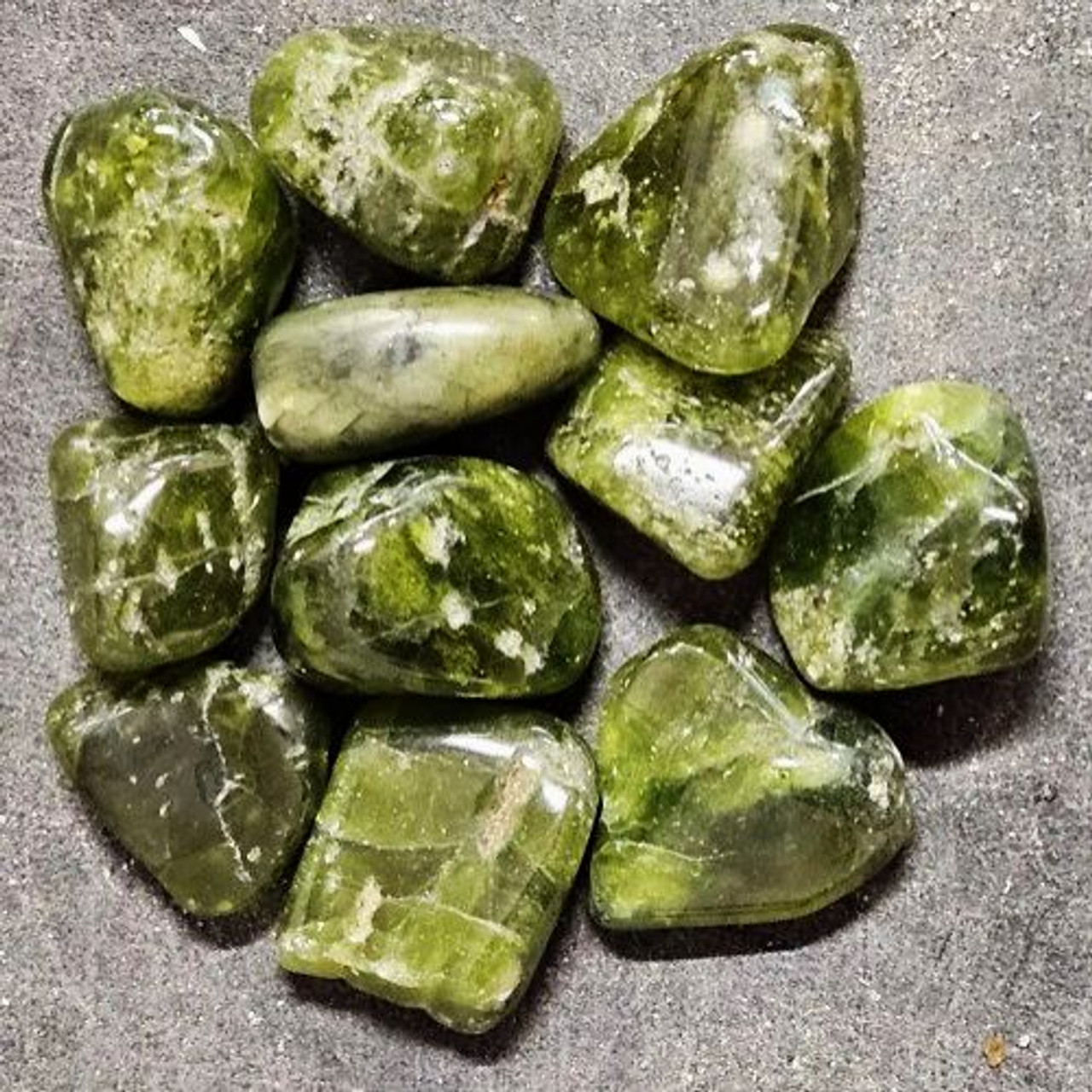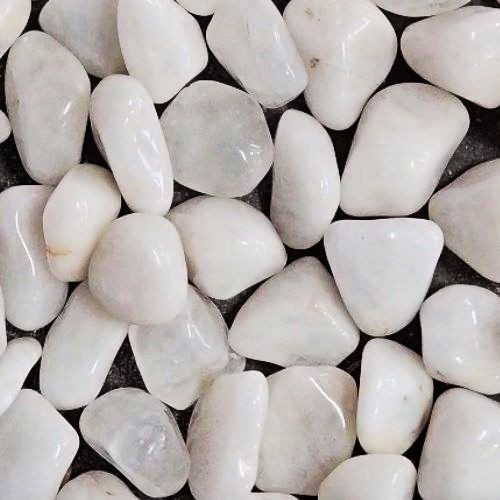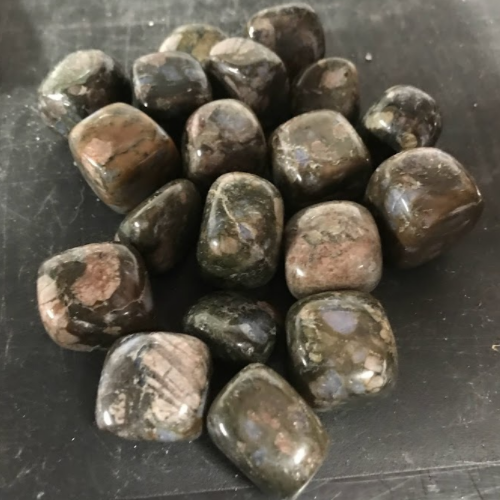Product Description
Vesuvianite aka Idocrase Tumbled Stone <1"
Mineral Information:
Vesuvianite, also known as idocrase, is a mineral that belongs to the silicate group. It was named after Mount Vesuvius in Italy, where it was first discovered. Vesuvianite occurs in a range of colors, including green, brown, yellow, blue, and purple. The color variation is due to impurities present in the crystal structure.
Here are some key characteristics of vesuvianite:
-
Appearance: Vesuvianite typically forms in elongated prismatic or tabular crystals, but it can also be found in massive or granular forms. It has a vitreous to resinous luster and a transparent to translucent appearance. The most common color of vesuvianite is green, which is often gem-quality and used in jewelry.
-
Crystal Structure: Vesuvianite has a complex crystal structure, classified as a sorosilicate. It belongs to the monoclinic crystal system, characterized by three unequal axes and one angle that is not a right angle.
-
Physical Properties: Vesuvianite has a moderate to high hardness of 6.5 on the Mohs scale, making it relatively durable and suitable for use in jewelry. Its specific gravity ranges from 3.3 to 3.5. Vesuvianite can display pleochroism, showing different colors when viewed from different angles.
-
Formation and Occurrence: Vesuvianite is typically found in metamorphic rocks, such as marbles and skarns, that have undergone high-pressure and high-temperature conditions. It forms in contact or regional metamorphic environments where rocks are subjected to the processes of heat and pressure, often associated with mountain-building events.
-
Uses and Significance: Gem-quality vesuvianite is highly prized and used in jewelry. The green variety, known as "californite" or "California jade," is particularly sought after for its attractive color and clarity. Vesuvianite is also used as a lapidary material for carving, cabochons, and faceted gemstones. Its unique colors and properties make it a favored choice among collectors and jewelry enthusiasts.
Metaphysical Meaning:
Vesuvianite is associated with promoting harmony, balance, and aligning the physical, emotional, and spiritual aspects of oneself. Vesuvianite is thought to enhance creativity, intuition, and spiritual growth. It is also considered a stone of protection, grounding, and manifestation. Vesuvianite is also said to resonate with the heart chakra, promoting love, compassion, and emotional healing. It is believed to support the release of emotional blockages, fostering self-love, and enhancing relationships with others. Vesuvianite's energy is thought to encourage forgiveness, harmony, and empathy.
Mineral Care:
Vesuvianite, also known as idocrase, is generally considered to have moderate durability and is not considered excessively fragile. However, it is important to handle vesuvianite with care to prevent any potential damage. Here are some factors to consider regarding the fragility of vesuvianite:
-
Hardness: Vesuvianite has a hardness of 6.5 on the Mohs scale, which is relatively high compared to many other minerals. This means that vesuvianite is less susceptible to scratches or surface damage compared to softer gemstones. However, it is still advisable to avoid contact with harder materials to prevent any potential scratching.
-
Cleavage: Vesuvianite exhibits distinct cleavage in two directions, which means it has a tendency to break along specific planes. While the cleavage is not considered particularly pronounced or fragile, it is still important to handle vesuvianite gently to minimize the risk of accidental breakage.
-
Impact Resistance: Like most gemstones and minerals, vesuvianite can be sensitive to physical impacts. Sudden drops, strong blows, or rough handling can cause fractures or breakage. It is essential to handle vesuvianite with care, especially when transporting or setting it into jewelry pieces.
-
Sensitivity to Temperature: Vesuvianite is generally stable under normal temperature conditions. However, extreme temperature changes, such as rapid heating or cooling, can potentially cause thermal stress and lead to fractures or cracks. It is advisable to avoid exposing vesuvianite to sudden temperature variations.
-
Chemical Sensitivity: Vesuvianite is relatively resistant to chemicals and does not react with most common household chemicals. However, it is still advisable to avoid exposing vesuvianite to harsh chemicals, strong acids, or abrasive cleaning agents, as they may affect its appearance or structural integrity.
To care for vesuvianite properly, it is recommended to clean it gently using mild soap, warm water, and a soft brush. Avoid using ultrasonic cleaners or steamers, as they may potentially damage the stone. It is also advisable to store vesuvianite separately from other gemstones or jewelry to prevent scratching.
Disclaimer:
No information here is intended to diagnose, treat or cure ailments or afflictions of any kind. One should always consult a medical professional if a serious issue presents itself.











